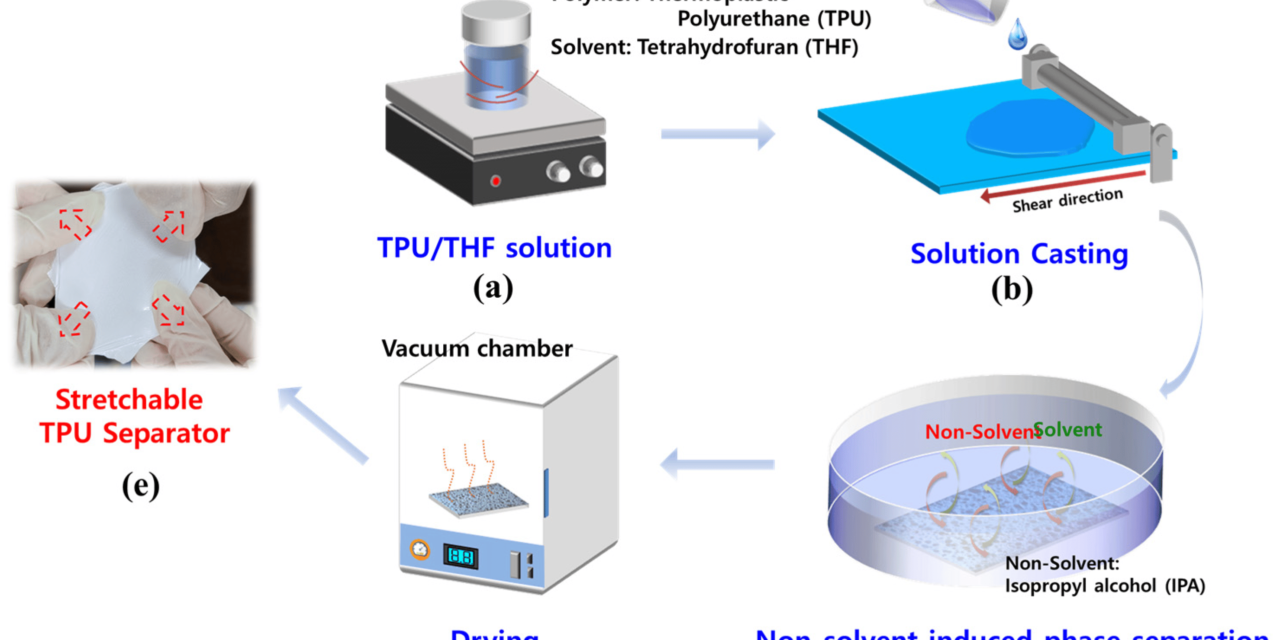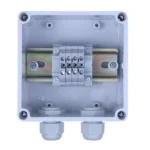Manufacturers customize Thermoplastic Polyurethane (TPU) formulations to meet the diverse performance requirements of different industries. By modifying the chemical composition and adding performance-enhancing additives, TPU can be tailored for flexibility, hardness, abrasion resistance, chemical stability, and environmental sustainability. Below are the key methods used to customize TPU formulations for specific applications.
1. Modifying the Polyol Type for Desired Flexibility and Strength
The choice of polyol affects TPU’s elasticity, durability, and resistance to environmental factors.
- Polyether-Based TPU:
- Offers excellent hydrolysis and microbial resistance.
- Commonly used in medical tubing, water-resistant coatings, and outdoor applications.
- Polyester-Based TPU:
- Provides high abrasion resistance and chemical stability.
- Preferred for industrial belts, automotive components, and sports gear.
- Polycarbonate-Based TPU:
- Delivers superior impact resistance and high-temperature performance.
- Used in protective casings, aerospace components, and electronics.
2. Adjusting Hardness and Elasticity (Shore A to Shore D Scale)
Manufacturers modify the polyol-to-isocyanate ratio to adjust TPU’s hardness.
- Soft TPU (Shore A 50-80):
- High elasticity and flexibility.
- Used in shoe soles, medical devices, and flexible tubing.
- Medium-Hard TPU (Shore A 80 – Shore D 40):
- Balance between flexibility and durability.
- Found in automotive parts, seals, and industrial rollers.
- Rigid TPU (Shore D 40-80):
- High structural strength and impact resistance.
- Suitable for smartphone cases, machine parts, and structural components.
3. Enhancing Chemical and Oil Resistance
TPU’s chemical resistance is customized for industries that require durability against solvents, oils, and fuels.
- Higher isocyanate content improves chemical resistance.
- Polyester-based TPU is used for fuel hoses, automotive gaskets, and oil-resistant seals.
- Fluorinated additives further enhance solvent resistance for aerospace and industrial applications.
4. Improving Abrasion and Wear Resistance
To make TPU more resistant to scratches, friction, and mechanical wear, manufacturers:
- Use high-density polyester-based TPU for conveyor belts, caster wheels, and industrial rollers.
- Add reinforcing fillers like glass fibers or carbon black for extra strength.
- Modify molecular weight to improve toughness in high-impact environments.
5. Enhancing Transparency and Optical Properties
For consumer electronics, medical devices, and packaging films, TPU must be optically clear and color-customizable.
- Aliphatic TPU formulations are used to enhance UV resistance and clarity.
- Optical brighteners and anti-yellowing agents prevent degradation in transparent films and smartphone cases.
- Color pigments allow TPU to be customized for fashion and branding purposes.
6. Customizing TPU for Temperature Resistance
TPU formulations can be engineered to withstand extreme temperatures.
- Heat-Resistant TPU (up to 150°C)
- Achieved by increasing the hard segment content in TPU.
- Used in automotive components, aerospace parts, and industrial pipes.
- Cold-Resistant TPU (down to -50°C)
- Modified with low-temperature plasticizers for flexibility in cold environments.
- Used in ski boots, winter gear, and arctic-resistant seals.
7. Incorporating Additives for Performance Enhancement
Manufacturers add specialty additives to enhance TPU performance in specific applications:
- UV Stabilizers and Anti-Yellowing Agents
- Prevent degradation in outdoor TPU products, automotive dashboards, and phone cases.
- Flame Retardants
- Improve fire resistance in electrical components, construction materials, and aerospace applications.
- Antimicrobial Agents
- Provide bacteria and fungal resistance for medical devices, footwear, and hygiene products.
- Static Dissipative and Conductive Additives
- Make TPU suitable for electronic casings, anti-static flooring, and EMI shielding applications.
8. Customizing TPU for Sustainable and Biodegradable Applications
With increasing demand for eco-friendly materials, manufacturers develop sustainable TPU alternatives.
- Bio-Based TPU
- Derived from renewable resources such as corn starch and castor oil.
- Used in eco-friendly footwear, biodegradable films, and green packaging.
- Recyclable TPU
- Designed for closed-loop manufacturing, where TPU waste is reused in new products.
- Common in automotive parts, sports equipment, and circular economy applications.
9. Processing TPU for Different Manufacturing Techniques
Depending on the final product, TPU formulations are optimized for specific manufacturing processes:
- Injection Molding:
- Requires TPU with high flowability and fast cooling properties.
- Used for automotive parts, phone cases, and shoe soles.
- Extrusion:
- Requires melt-stable TPU with consistent viscosity.
- Used for flexible tubing, conveyor belts, and cable insulation.
- 3D Printing:
- TPU filaments are engineered for consistent layer adhesion and flexibility.
- Used in custom prosthetics, wearables, and industrial prototyping.
- Blow Molding:
- Requires low-density TPU with good air retention.
- Used for inflatable products, protective gear, and air cushions.
Conclusion
Manufacturers customize TPU formulations by adjusting polyol types, hardness levels, chemical resistance, additives, and processing characteristics to suit specific industrial applications. By enhancing mechanical properties, improving environmental resistance, and adding functional additives, TPU can be tailored for footwear, automotive, electronics, medical, industrial, and sustainable applications.
Hahstags
#CustomTPU #TPUFormulation #MaterialCustomization #AdvancedPolymers #PerformancePlastics #FlexiblePolymers #TPUInnovation #PolymerEngineering #IndustrialTPU #TPUApplications #SpecialtyPlastics #HighPerformanceMaterials #DurablePolymers #SmartMaterials #TPUManufacturing #EcoFriendlyTPU #BiodegradableTPU #WearResistant #ThermoplasticElastomers #TailoredMaterials














